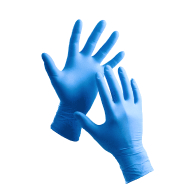Chemsplash Type 6B PB PVC Grip Overboot
4.7 / 5
Chemsplash logo
Chemsplash
visit storeProduct description
Chemsplash PVC Grip Slip Resistant Overboot - Sterile Irradiated Type PB 6B, 55GSM Laminate Fabric, Elasticated Top & Ankles, Anti Static Non Linting EN14126
- Clean Room
- Electrical Protection
- Slip Resistant
Request a free sample
Test first and buy later. Visit any product page to request your free sample.
Standards and labels
Chemsplash delivery terms
Free delivery for all Chemsplash products
Prices excl. VAT
4 476,02 kr
Price per 150 packages (150 pcs)
29,84 kr / piece
Estimated delivery: Sep 1-3rd
Minimum: 1 carton
Add 1 to reach minimum
Free delivery
A carton contains 150 packages (150 pieces)
View packaging details
Need larger quantities?
Other products you may like
Recently viewed
Other products you may like
Similar products you may like
Autonomous sourcing platform
The most efficient way to source and order supplies for your operations
Sourcing
Find all possible options within Europe in one place
Tap into the purchasing power of 1000s of customers
Set Price Alerts for your products and volumes
Ordering
Single process to order for your suppliers
Centralize orders to reduce admin work
Easily coordinate orders with your team






